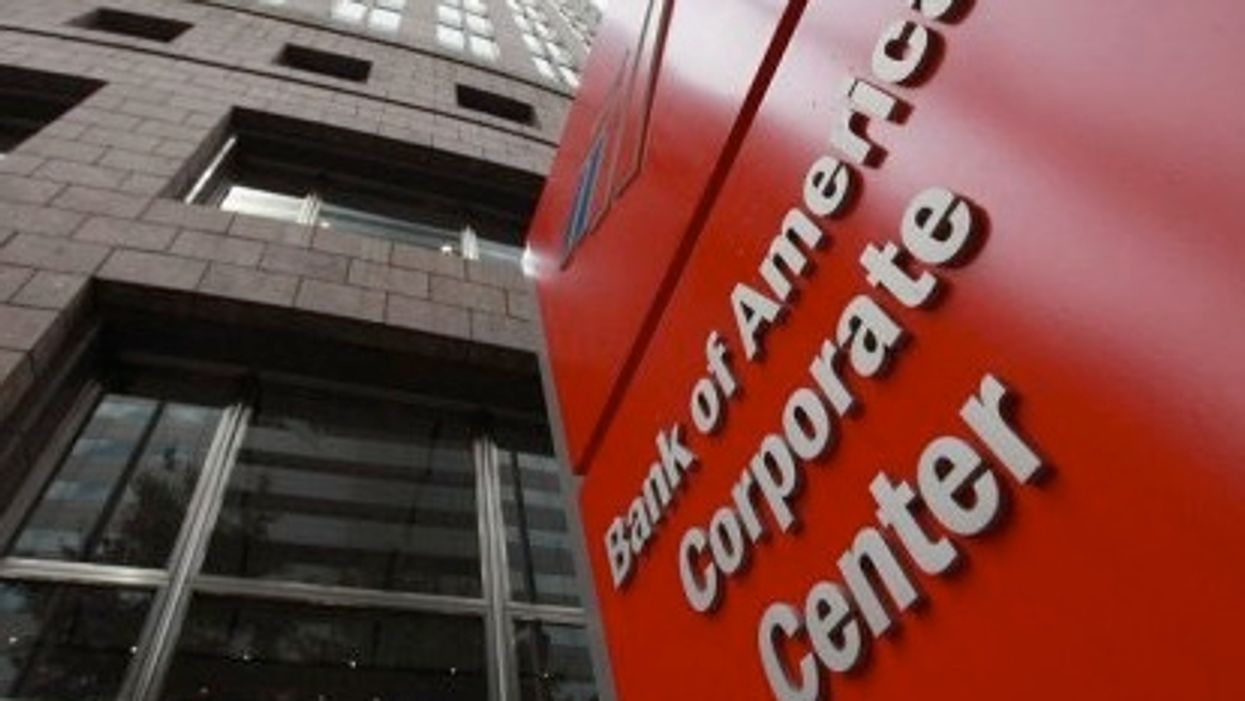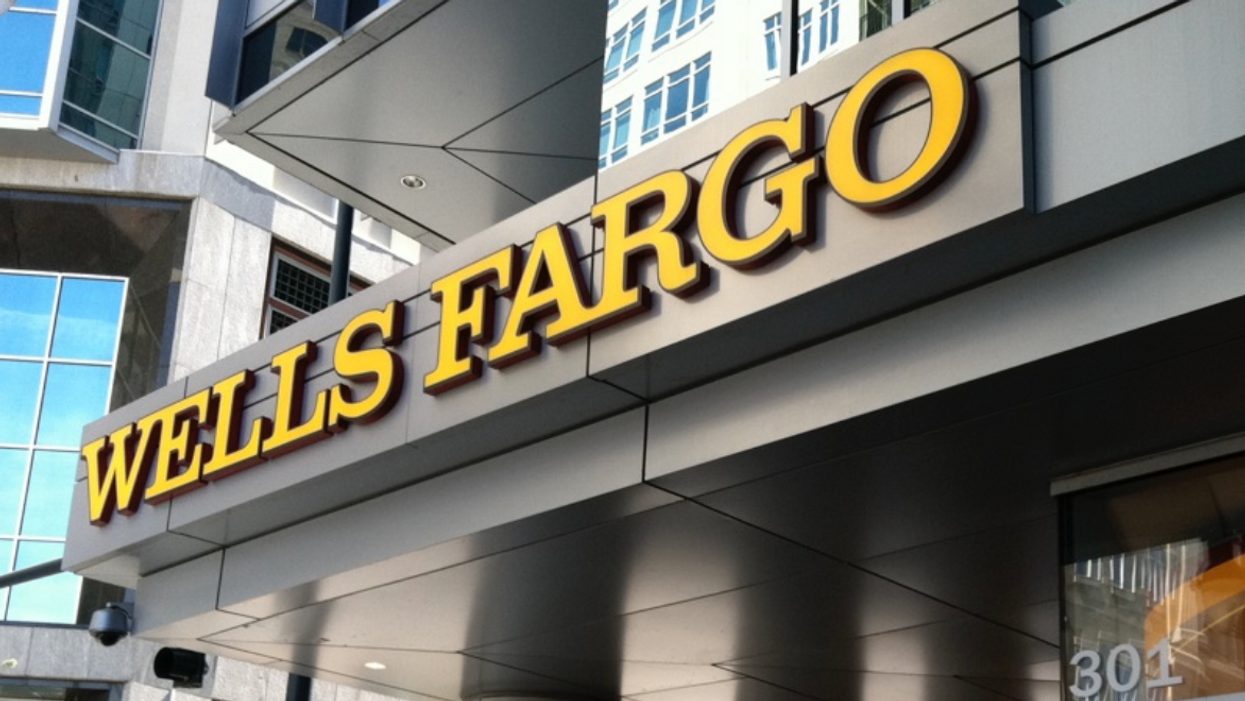Project 2025 Operative Wrecking Consumer Finance Protection Bureau
The new head of the Consumer Financial Protection Bureau — a former top architect in the controversial transition plan known as Project 2025 — reportedly told its employees on February 10 to “not perform any work tasks this week,” at least temporarily shuttering an agency that has been the target of right-wing media attacks for years.
Russ Vought, who also serves as the director of the Office of Management and Budget, wrote over the weekend that the CFPB “will not be taking its next draw of unappropriated funding because it is not 'reasonably necessary' to carry out its duties.”
The CFPB has saved working Americans tens of billions of dollars since it was founded in 2011, including more than $6 billion in annual overdraft fees alone from 2019-2023. Calling it “one of Wall Street’s most feared regulators,” The New York Times reported on February 9 that the bureau’s success has put it “squarely in the Trump administration’s cross hairs.”
It has clawed back $21 billion for consumers. It slashed overdraft fees, reformed the student loan servicing market, transformed mortgage lending rules and forced banks and money transmitters to compensate fraud victims.
It may no longer be able to carry out that work.
…
In less than 36 hours, Mr. Vought threw the agency into chaos. On Saturday, he ordered the bureau’s 1,700 employees to stop nearly all their work and announced plans to cut off the agency’s funding. Then on Sunday, he closed the bureau’s headquarters for the coming week. Workers who tried to retrieve their laptops from the office were turned away, employees said.
Now, Vought appears to be fulfilling a Project 2025 promise — and a longtime right-wing media goal — by taking an axe to the CFPB.
Vought and Project 2025 envision massive White House power grab
Prior to joining the Trump administration, Vought founded the Center for Renewing America, one of more that 100 conservative organizations on the advisory board of Project 2025. He also wrote the chapter in Project 2025’s policy book, Mandate for Leadership, on the Executive Office of the President of the United States, calling “to bend or break the bureaucracy to the presidential will.”
Vought laid bare Project 2025’s broad ambitions in a secretly recorded video last year, saying that he and his collaborators had prepared “about 350 different documents that are regulations and things of that nature that are — we’re planning for the next administration.”
The Trump administration has already begun following through on Project 2025’s goals, and dismantling the CFPB is no different. Mandate for Leadership refers to the bureau as a “highly politicized, damaging, and utterly unaccountable federal agency” that is “unconstitutional,” writing that the “next conservative President should order the immediate dissolution of the agency—pull down its prior rules, regulations and guidance, return its staff to their prior agencies and its building to the General Services Administration.”
In his dual role at the top of OMB and the CFPB, Vought is well-positioned to enact this sweeping agenda, and he is already taking steps that would amount to a massive power grab for Trump’s White House.
Vought and his colleagues at the Center for Renewing America are leading supporters of a radical theory that the executive branch can unilaterally refuse to spend money allocated by Congress. Toward that end, Vought issued an OMB memo that temporarily froze all federal funding. (The memo was later retracted after widespread backlash.)
Vought outlined his extreme vision for expansive control in a recent interview with former Fox News host Tucker Carlson.
“There are no independent agencies,” Vought said, specifically mentioning the CFPB among others. “So there may be different strategies with each one of them about how you dismantle them, but as an administration, the whole notion of an independent agency should be thrown out.”
Right-wing media have long attacked the CFPB
Right-wing media figures have targeted the Consumer Financial Protection Bureau since its inception in the wake of the Great Recession.
In 2015, The Wall Street Journal’s editorial board attacked the CFPB for its multiyear investigation into racially discriminatory car financing practices. The Journal’s board called the effort an “outrageous regulatory campaign” and called on Congress to implement additional hurdles to the CFPB’s enforcement capacity. The CFPB ultimately clawed back tens of millions of dollars for racial minorities who had been subject to higher-than-average loan rates across several lenders.
In November 2017, Fox News anchor Dana Perino invited a guest on to criticize the CFPB without disclosing that they represented clients opposed to the bureau’s regulations. Right-wing blog The Federalistpublished an article the same day with the headline: “This Is The Perfect Time To Destroy The Consumer Financial Protection Bureau.” A day later on Fox News, never-Trump conservative Jonah Goldberg referred to the CFPB as a “hate crime against the Constitution.”
More recently, right-wing media figures targeted a Biden-era initiative at the CFPB that went after predatory credit card gouging schemes and other junk fees that cost working people in the United States more than $10 billion every year.
Trump administration following through on Project 2025’s goals
“This morning he's [President Biden] talking about late fees, and he's talking about corporate America, and it's companies' fault that people are facing inflation,” Fox News’ Maria Bartiromo said. The next day she again criticized Biden’s focus on “late fees,” directing her viewers’ anger toward undocumented immigrants instead of credit card companies.
On February 5, Fox published an opinion piece calling for Trump to “delete Elizabeth Warren’s failed experiment once and for all,” claiming that “CFPB is doing more harm than good, and its dissolution is not just a policy preference but an economic necessity.”
As news of Vought’s takeover broke, several conservative outlets cheered what they saw as the demise of the CFPB. The Daily Wire framed Vought’s actions in its headline as the “Latest Trump Admin Move To Cut Government Waste.” Conspiracy theory website The Gateway Pundit celebrated: “The corrupt agency which was the ‘brainchild’ of Senator Elizabeth ‘Pocahontas’ Warren (D-MA) could be on its last legs.” The think tank Vought founded also weighed in, publishing a white paper titled: “The CFPB Should Be Shut Down.”
On Fox News, host Laura Ingraham defended the good name of several financial institutions against the intrusions of the CFPB.
“Now, to give you a sense of how partisan that place has become, in December its chief rushed to file several lawsuits against the payment platform Zelle, JPMorgan Chase, Bank of America, and Wells Fargo, alleging this amorphous failure to protect consumers,” Ingraham said. “It's ridiculous. And it amounts to another shakedown of business by anti-capitalist crusaders. That’s all it is.”
Ingraham was a lonely voice at Fox News celebrating the news, despite network figures campaigning against the CFPB for years. A Media Matters study found that between Vought’s appointment to head the agency on February 7 and 3 p.m ET on February 10, “network personalities mentioned the CFPB just 5 times for a total of about 40 seconds.”
Reprinted with permission from Media Matters.













